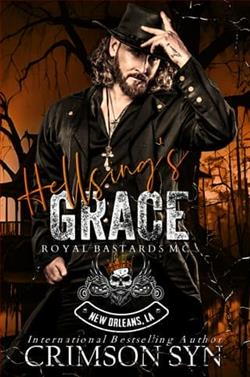Page 2 of The Lady Who Said No to the Duke
‘Naturally he intends to meet you, foolish girl.But he has no need to ask, it is all agreed.’
‘But not, as I keep attempting to make clear, byme.’
Her father’s face was thunderous now, and Thea had to curl her toes in her shoes to stop herself backing away.He had never struck her, never administered so much as a smack on the hand, but then, a panicky thought warned her, she had never displeased him like this before.
‘You are not trying to tell me you wish to marry someone else?You have not been indulging in some clandestine flirtation, I sincerely trust?’
‘Certainly not, Papa.I have not yet met the man I wish to marry.’Somehow Thea managed to say in a fairly moderate tone, ‘Until then, if I refuse to marry the Duke, I fail to see what anyone can do to force me.This is hardly the Middle Ages.’
‘In the Middle Ages, undutiful, disobedient daughters were sent to nunneries.’Her mother’s voice was so calm that Thea felt a sudden stab of real apprehension that they were not going to take no for an answer.
Her parents exchanged a meaningful look, her father nodded and Mama said, ‘If you persist in this nonsense your allowance will be greatly reduced and you will be sent to live with Cousin Elizabeth in Harrogate.’
‘CousinElizabeth?’
Her mother’s cousin was twice a widow—Thea’s brothers always maintained that she had eaten her husbands in the manner of female spiders—and she employed, and then dismissed, companions at an alarming rate.Or they fled.She was sour, obsessed with propriety and with good works, although only for the benefit of those she considered the Deserving Poor.
‘Cousin Elizabeth has had to dismiss yet another unsuitable companion.You will do very well as a replacement for now.I imagine that, after a month, you will find that the prospect of marrying a man holding one of the most elevated positions in society, a nobleman of great wealth, is significantly better than life in Harrogate.’
‘And where will you say I am when he arrives on the doorstep in three weeks’ time?’Thea asked, trying very hard not to panic.
‘I will apologise but explain that, unfortunately, you are having to take the waters after catching the influenza,’ Mama said grimly.‘You really leave us very little choice.’
‘Which is it to be, Thea?’her father asked.‘Decide.You stop this undutiful nonsense now and agree to receive Leamington, or you go to Harrogate tomorrow.’
‘Harrogate,’ Thea said, chin up.
* * *
At least she was travelling in comfort and had not been bundled onto the stage, Thea thought the next morning as the family’s travelling carriage rolled away down Chesterfield Street.
On the other hand, there was far less chance of escape from a closed carriage with a driver and two grooms who had been in the Earl’s service for years and, sitting opposite her, Mama’s own lady’s maid, Agatha Maunday.
She doubted John the driver, or Peter and Tom the grooms, knew why she was making this journey, but there was no doubt from her expression that Maunday did.She was clearly both astounded and deeply disapproving.
Thea shifted on the seat, trying to get comfortable with a purse of money concealed in her stays.It was not a great deal—six guineas and some change—but that was all she had in the way of resources.While her clothes were being packed Mama had removed her jewellery box, remarking, ‘You will not be needing these.’That had left her with a pair of pearl earrings, a thin gold chain and a small seed pearl brooch.
Fortunately, the first thing Thea had done when she had reached her bedchamber was to hide almost all of what was left of her quarterly allowance, leaving just a guinea and sixteen shillings in the hope that Mama would believe that was all she had unspent.She had removed the guinea without saying anything.
Now all Thea had to do was to devise an escape plan.But what was there to escape to?And what could she do when she got away?She had no skills other than those any young lady was expected to master and they hardly had much commercial value, not without references to support them.
She could write herself some letters of recommendation, she thought, pondering the possibilities, but only governess, companion or semptress came to mind and she could not see herself being very successful at any of them.Companion perhaps.Not every lady in need of one could be as objectionable as Cousin Elizabeth, surely?
An hour later, she recalled the road book that lived in a door pocket of the coach and drew it out.Following the route might be a distraction.
Thea found Harrogate on the map.Goodness, but it was a long way north.She traced the route with her fingertip, all the way up the Great North Road.Finchley, Baldock, Stamford, Grantham, Doncaster…
Grantham.Grantham was the nearest town to where her godmother, the Dowager Countess of Holme, lived.Thea had six godparents, carefully selected for their position in society, their contacts and the likelihood they would leave her something substantial in their wills.She wrote them all dutiful letters from time to time, exchanged small gifts at Christmas, and that was all she had to do with them.
Except for Clarissa, Lady Holme, the widow of Papa’s cousin.She was charming, took an interest in what Thea was doing, wrote long, chatty letters and sent gifts of interesting books.Most of those had to be hidden from Mama because they were novels or tracts by ladies proposing the vote for women and other such scandalous things.
Godmama would not approve of Cousin Elizabeth andshe wouldn’t approve of Thea being forced into marriage, either, even if it was to a duke.
And they would be driving past her doorstep.Well, within ten miles or so from it.She had two days to think of a plan.Thea lifted the road book, looked out of the window and began to talk.She must seem bright, interested and cooperative.
‘This must be Highgate Hill, Maunday.How steep it is!Just think of Dick Whittington climbing it, all ready to give up and leave London, and then hearing the bells calling him back!Now, what is next?Ah yes, Finchley Common.My goodness, do you think we will be held up by highwaymen?There’s a tree called Turpin’s Oak…’
* * *















